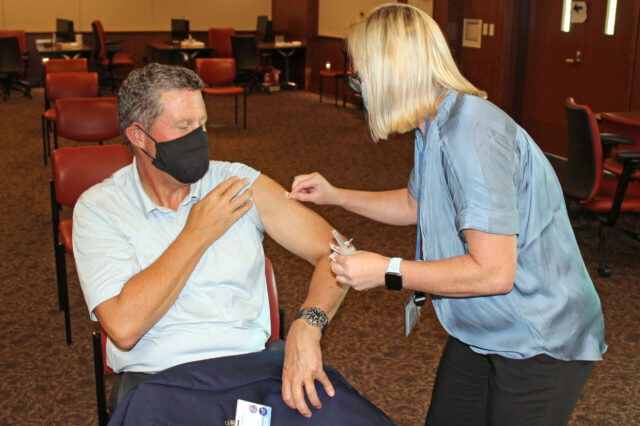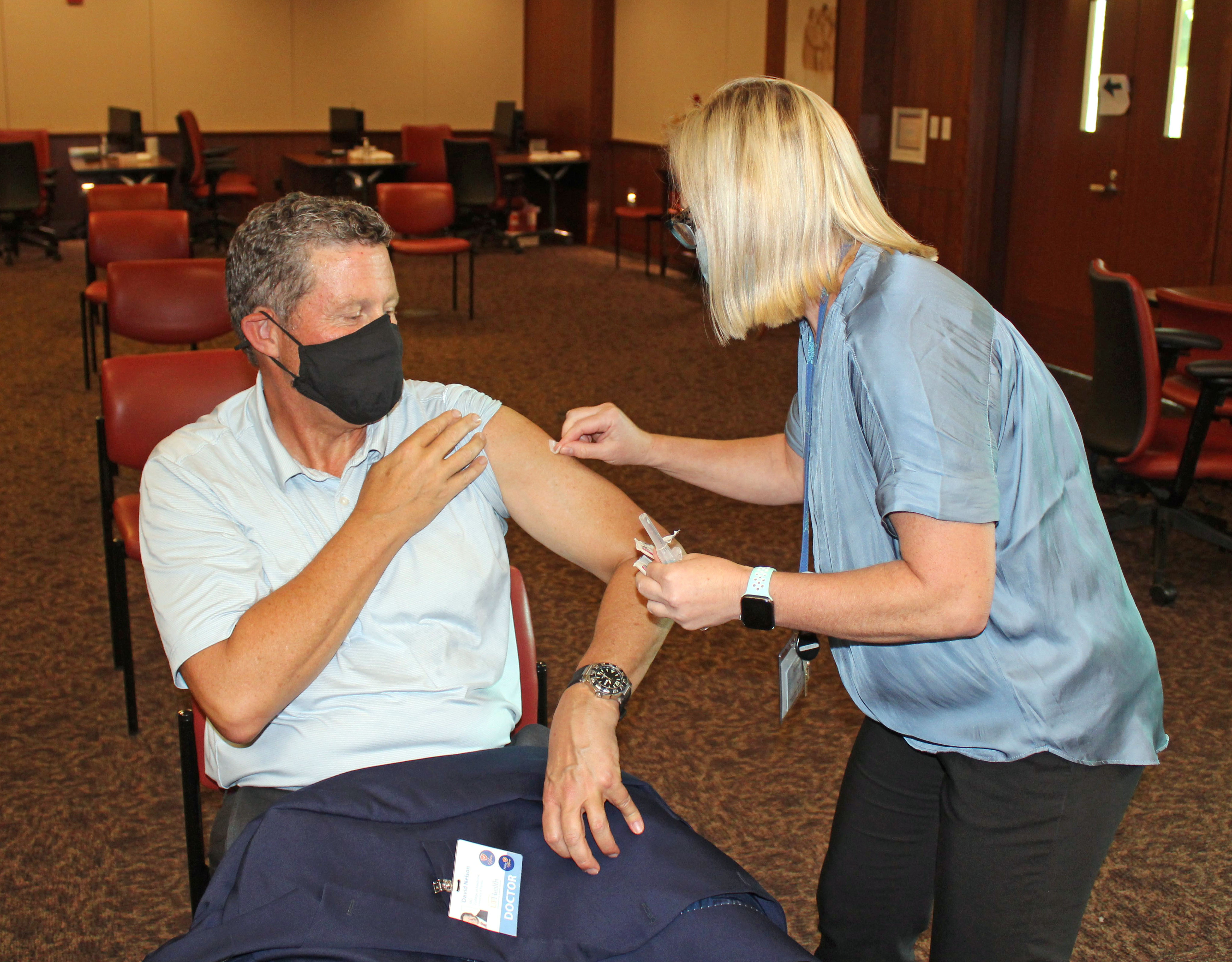Staying protected against COVID-19 and the flu this fall

With the emergence of the delta variant this summer, the COVID-19 pandemic continues to be top of mind for many. Because of this, some people might not consider flu season much of a public health threat. However, the flu still poses significant risks to the very young, to older adults and to those with pre-existing medical conditions.
It is more important than ever to get vaccinated against both COVID-19 and the flu for your own health and to help us continue our commitment to the health of our community. UF Health flu experts have answered your questions about the flu and COVID-19 this year.
 Will there be flu along with COVID-19 in the fall and winter?
While it’s not possible to say with certainty what will happen in the fall and winter, the CDC believes it’s likely that flu viruses and the virus that causes COVID-19 will both be spreading. In this context, getting a flu vaccine will be more important than ever.
Will there be flu along with COVID-19 in the fall and winter?
While it’s not possible to say with certainty what will happen in the fall and winter, the CDC believes it’s likely that flu viruses and the virus that causes COVID-19 will both be spreading. In this context, getting a flu vaccine will be more important than ever.
Who should be vaccinated against the flu? The CDC recommends annual influenza vaccination for all individuals age 6 months or older, with rare exception.
Is the flu vaccine safe? Vaccines, including the flu and COVID-19 vaccines, must meet rigorous scientific standards for safety and effectiveness set by the Food and Drug Administration, or FDA, in order to receive approval or authorization. Flu vaccines are very safe and have been administered since 1943. The most common side effect is mild soreness at the injection site; the soreness generally goes away within 24 hours. Less than 1 percent of those vaccinated develop other common side effects: fever, chills and muscle aches. Again, these are temporary and generally resolve within 24 hours.
Should pregnant women receive the flu vaccine? The flu vaccine can and should be given to pregnant women during any trimester. Pregnant women and their newborn can benefit from influenza vaccination as both are at greater risk of severe influenza illness and complications. Women who receive influenza vaccine during pregnancy can pass protection to their newborn. This is important because children under 6 months old are too young to be vaccinated for influenza.
Can the flu vaccine cause the flu? Flu vaccines do not cause influenza disease. You may have injection site soreness, mild fever, chills and muscle aches in the 24 hours after receiving the vaccine. These mild side effects should not be confused with influenza disease.
What is the difference between Influenza (Flu) and COVID-19? Influenza (Flu) and COVID-19 are both contagious respiratory illnesses, but they are caused by different viruses. COVID-19 is caused by infection with a new coronavirus (called SARS-CoV-2) and flu is caused by infection with influenza viruses. Because some of the symptoms of flu and COVID-19 are similar, it may be hard to tell the difference between them based on symptoms alone, and testing may be needed to help confirm a diagnosis. Flu and COVID-19 share many characteristics, but there are some key differences between the two.
Can I get my COVID-19 vaccine and flu vaccine at the same time? Yes. The Advisory Committee on Immunization Practices through the CDC advises that you do not need a two-week separation between the COVID-19 vaccine and flu vaccine. UF Health experts recommend getting the flu and COVID-19 vaccines in separate arms if receiving them at the same time.
I don’t have a primary care provider, where can I get a flu vaccine? If you don’t have a doctor that you regularly see, flu vaccines are also available at several locations, including health departments and retail pharmacies. You can use VaccineFinder.org to find where flu vaccines are available near you.